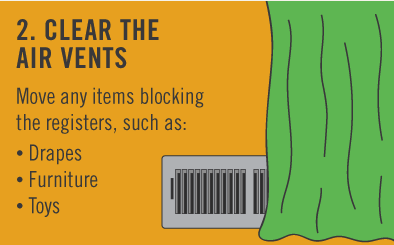The Future Of Home Home Heating - Exactly How Heat Pump Innovation Is Advancing
The Future Of Home Home Heating - Exactly How Heat Pump Innovation Is Advancing
Blog Article
mitsubishi air conditioner logo -Marshall Byrne
Heatpump will be an important technology for decarbonising heating. In a scenario consistent with federal governments' introduced power and climate commitments, their worldwide ability increases by 2030, while their share in home heating rises to one-quarter.
They function best in well-insulated homes and count on power, which can be provided from a sustainable power grid. Technical breakthroughs are making them a lot more effective, smarter and less expensive.
Fuel Cells
Heatpump make use of a compressor, cooling agent, coils and fans to move the air and heat in homes and devices. They can be powered by solar power or electrical power from the grid. They have been gaining popularity as a result of their low cost, quiet operation and the capability to create power during peak power need.
Some business, like IdaTech and BG MicroGen, are working on gas cells for home heating. These microgenerators can replace a gas central heating boiler and create some of a residence's electric demands with a connection to the electricity grid for the rest.
Yet there are factors to be hesitant of using hydrogen for home heating, Rosenow says. It would certainly be expensive and ineffective compared to various other modern technologies, and it would certainly add to carbon emissions.
Smart and Connected Technologies
Smart home innovation allows house owners to attach and regulate their gadgets from another location with using smart device applications. For instance, wise thermostats can learn your home heating choices and automatically get used to maximize energy consumption. Smart illumination systems can be regulated with voice commands and automatically switch off lights when you leave the room, reducing energy waste. And Learn Alot more Here can check and manage your electric usage, allowing you to recognize and limit energy-hungry home appliances.
The tech-savvy household shown in Carina's meeting is a good illustration of just how residents reconfigure area home heating techniques in the light of new wise home technologies. They rely on the devices' automated functions to perform daily modifications and concern them as a practical ways of conducting their heating techniques. Thus, they see no factor to adapt their methods additionally in order to enable versatility in their home energy demand, and interventions aiming at doing so may face resistance from these homes.
Electrical power
Considering that heating homes represent 13% people discharges, a switch to cleaner options can make a big difference. However the technology deals with challenges: It's costly and needs considerable home remodellings. And it's not constantly suitable with renewable resource resources, such as solar and wind.
Up until recently, electrical heat pumps were too costly to take on gas versions in most markets. However brand-new innovations in layout and products are making them extra budget-friendly. And far better cool environment efficiency is allowing them to work well even in subzero temperature levels.
The next step in decarbonising home heating might be using warm networks, which attract heat from a central resource, such as a neighboring river or sea inlet, and disperse it to a network of homes or structures. That would certainly reduce carbon exhausts and allow homes to capitalize on renewable resource, such as eco-friendly electrical energy from a grid supplied by renewables. This option would certainly be less costly than switching over to hydrogen, a nonrenewable fuel source that requires new framework and would only lower CO2 discharges by 5 percent if coupled with enhanced home insulation.
Renewable Energy
As electricity prices go down, we're starting to see the same fad in home heating that has actually driven electric autos right into the mainstream-- however at an even faster speed. The solid climate instance for impressive homes has been pressed further by new research study.
Renewables represent a significant share of contemporary heat usage, but have actually been offered restricted plan interest internationally compared to various other end-use fields-- and also less attention than power has. In part, this reflects a mix of consumer inertia, split rewards and, in numerous countries, subsidies for fossil fuels.
New innovations might make the shift less complicated. For example, heatpump can be made a lot more energy efficient by changing old R-22 refrigerants with brand-new ones that do not have the high GWPs of their precursors. Some experts additionally imagine district systems that draw heat from a neighboring river or sea inlet, like a Norwegian arm. The cozy water can after that be used for cooling and heating in a community.